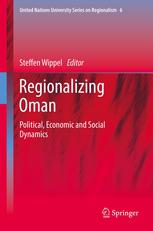

Most ebook files are in PDF format, so you can easily read them using various software such as Foxit Reader or directly on the Google Chrome browser.
Some ebook files are released by publishers in other formats such as .awz, .mobi, .epub, .fb2, etc. You may need to install specific software to read these formats on mobile/PC, such as Calibre.
Please read the tutorial at this link: https://ebookbell.com/faq
We offer FREE conversion to the popular formats you request; however, this may take some time. Therefore, right after payment, please email us, and we will try to provide the service as quickly as possible.
For some exceptional file formats or broken links (if any), please refrain from opening any disputes. Instead, email us first, and we will try to assist within a maximum of 6 hours.
EbookBell Team

5.0
110 reviewsThis volume addresses the historical structures and current dynamics of Oman’s regionalization processes and their political, economic and social dimensions. It is based on an interdisciplinary and trans-regional dialogue between scholars from different social sciences and area studies such as political science, economics, management, economic and social geography, history, social anthropology and linguistics as well as Middle East/West Asian, gulf and African studies, and develops four major axes of research:
- Oman’s integration into global and regional flows of goods, capital, people and ideas;
- The multi-scaled political negotiation of such integration (or disintegration) processes;
- Consequences of suchlike processes and forms of regionalization for (translocal) actors;
- Ideas and strategic communication of regional belonging and the constitution of regions.
Each chapter deals with one or more of these issues. Part I deals with concepts of regionalisation and region-building and presents different approaches that accentuate certain dimensions of these processes and come from different disciplinary backgrounds. Part II focuses on the translocal, transnational and (trans)regional movement of people, their practices and imaginations, be they contemporary labour in- and out-migrants, returnees from Eastern Africa or nomadic tribal members. Part III takes a closer look particularly at economic issues and regionalisation processes that are mainly based on multiple trade links, regional development policies or politics of regionalism. Part IV analyses political and socio-cultural issues in regional and global perspectives.